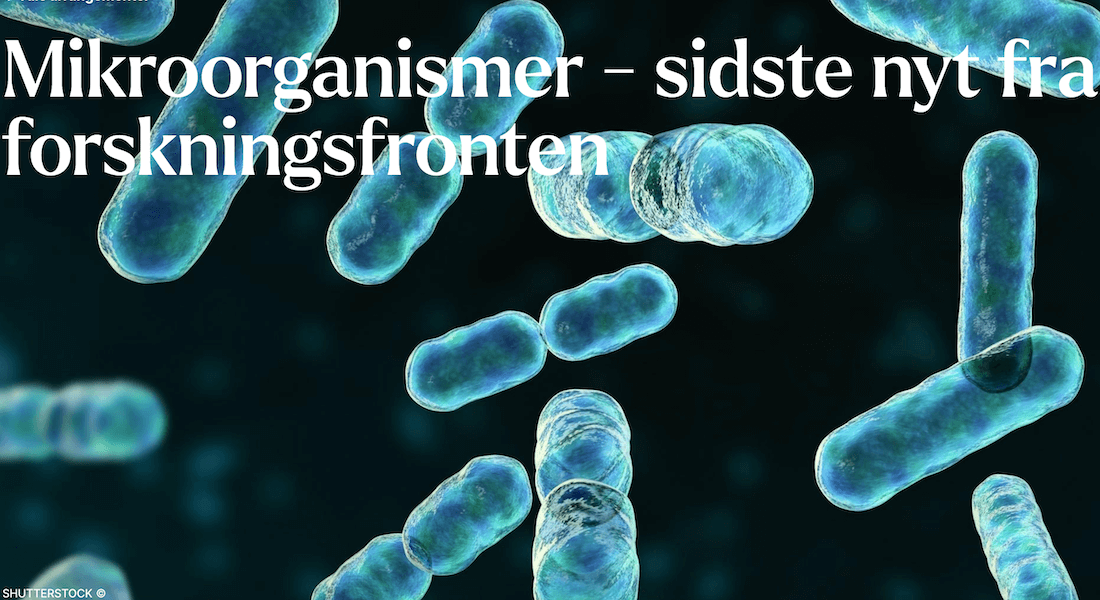Vin og Videnskab: Mikroorganismer - sidste nyt fra forskningsfronten

We cannot see them, but microorganisms play a crucial role in the world, both in our own lives and for other living organisms. Understanding and harnessing microorganisms can have significant implications for our health and future. Four leading researchers dive into the microscopic world, discussing antibiotic-producing bacteria and the future of antibiotic treatment, the advanced microbiomes of plants, and an ambitious project to map all of Denmark's microbes.
Lecture with Vin og Videnskab (Wine & Science)
WEDNESDAY 14.05.2025, 19:00–21:15
For nearly a century, bacteria and other microorganisms have been our most important source of the antibiotics used to fight infectious diseases. Now, researchers' understanding of why bacteria actually produce antibiotics is changing. Previously, it was believed to be solely for fighting each other, but it turns out these substances serve many other crucial functions. Professor and center leader Lone Gram will share the latest knowledge in the field and explain how it may help us discover new antibiotics.
Antibiotic resistance—the phenomenon where disease-causing bacteria become resistant to antibiotics—is a rapidly growing problem worldwide. Finding a solution to this problem is one of the most critical tasks facing medical science today. A research group from Aarhus University, led by Professor Ditlev E. Brodersen, has taken on this challenge. In a large, innovative research project, they will investigate whether it is possible to turn bacteria's natural immune systems against themselves as part of future antibiotic treatments.
In recent years, we've heard a lot about the importance of our own microbiome, such as the microorganisms in our digestive system. But plants also have a complex microbiome, which is increasingly being understood as playing a huge role for them. For example, bacteria and fungi can be essential for crops' ability to withstand drought, and symbioses with specific fungi have played a crucial role in the evolution of different plant groups. Botanist and assistant professor Ida Hartvig will talk about the revolution in this research field and how it may be crucial for developing sustainable agriculture and restoring healthy ecosystems in the future.
For many years, bacteria were primarily studied in laboratories. But Professor and research leader Mads Albertsen has developed groundbreaking new methods for analyzing bacterial DNA, enabling large-scale studies of bacteria in nature. With these tools, he has embarked on mapping all the microbes that exist naturally in Denmark through the project Microflora Danica. The ambition is for the project's results to be used to develop new sustainable bio-based solutions for agriculture and the climate.
